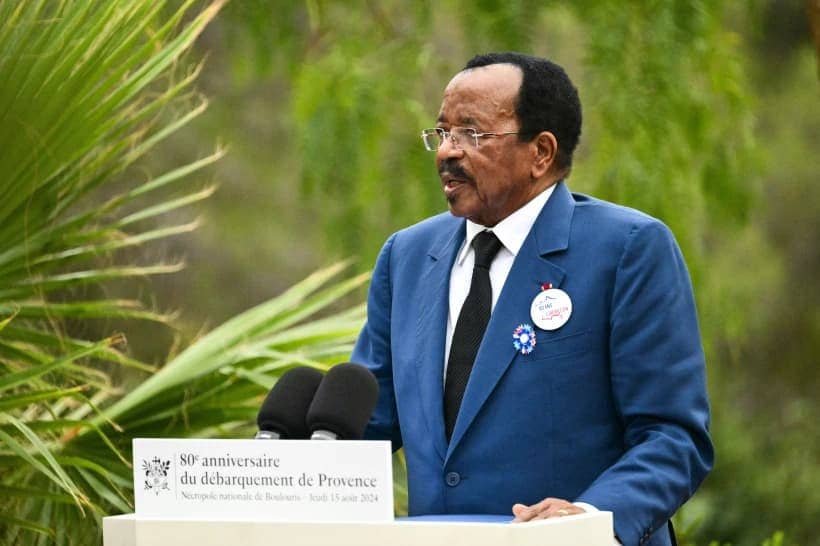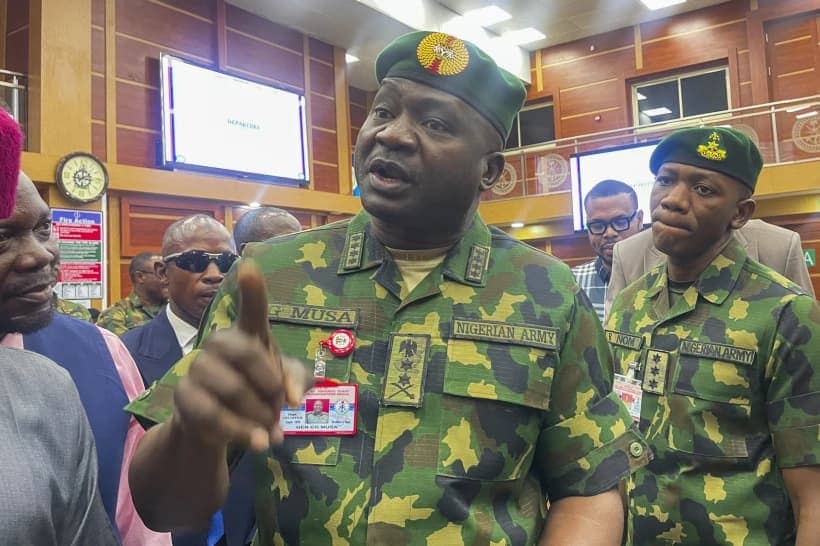NEW YORK — Ignatius Kaigama was only 36 years old when Pope John Paul II made him a bishop in 1995. In the year 2000, he was named Bishop of Jos. On March 11, Pope Francis named him coadjutor Archbishop of Abuja, the Nigerian capital. Kaigama will automatically succeed Cardinal John Onaiyekan when he retires.
Kaigama has become one of the leading Catholic voices on the African continent, working closely with the papal foundation Aid to the Church in Need to raise awareness of Christian persecution around the globe.
Kaigama was recently in New York to participate in an event organized by the Holy See’s Mission to the United Nations on international religious freedom. He spoke with Crux about the challenges presented by Boko Haram and the effects of Francis’s outreach to the Muslim world.
This is part one of a two-part interview.
Crux: Your own archdiocese has been the subject of attacks simply because you are Christians. What is the state of persecution against Christians in Nigeria, particularly by Boko Haram?
Kaigama: Boko Haram is specifically active in the northeast region of Nigeria, and their primary aim is to promote Islam. The unfortunate thing is that they want to promote it violently. How I wish they could just promote Islam by peaceful persuasion, by convincing people through a life of authentic Islamic witness, not taking to guns to force people to convert.
When you abduct girls, and you put the veil over them, they have no inner convictions about Islam. This is the trend that we continue to witness. It’s not just my diocese. Within middle belt region is an area that since the Jihad of 1804, Muslims could not successfully control and lay hold of. Now, whether it is conflict from Boko Haram or the herdsman, it is all an attempt to capture the region that was not captured in 1804. It’s all about religion, even if it does not affect religion and it is over economic and social conflict, before you know it, the religious dimension has come in. It’s difficult to resolve.
Christians and Muslims in the southern part of the country have a much more amicable relationship than they do in the north. What do you believe the south could offer them by way of example?
When I go to the south, I’m so impressed by the level of conviviality, interaction, and acceptance of people of different faiths. I gave an example of an opening Mass that the Catholic bishops’ conference celebrated when we opened in southwestern Nigeria. The governor is a Muslim married to a practicing Catholic. They were both in church. When we knelt, the governor knelt. When we stood up, he stood up together with his wife. No one even knew he wasn’t a Christian until the announcement time when we asked him to share a few words, and I just thought, “my goodness, this just goes to show the level of acceptance.”
His wife is Catholic, and he is Muslim, but he followed her to church and participated in everything despite being a staunch Muslim. That didn’t take away from him being a Muslim. How I wish this was the type of attitude we could have in the north also, that we could visit the mosques and they could visit the churches without fear or distrust. We would like to see a more liberal attitude. We are all believers in the one God, the creator of heaven and earth. Why should we discriminate and call each other names? We have a lot to do in the north to catch up with those in the south.
Pope Francis has emphasized interreligious dialogue with the Muslim world throughout his pontificate. Why do you think he’s prioritized this issue, and what do you think has been the effect of it?
He is not just an amateur pastor; he is concrete, pragmatic and experiential. He’s aware that these two religions are very dominant throughout the world. They are both powerful. If they get things right with one another, there will be peace and order, and we can use the value of these two religions to build a better world and a more conducive atmosphere for all of us.
No one should be bombing another. There’s no need for that, and I think the pope is aware that these two religions have huge followers and huge potential, and he must convince them to come together and see what can be done to improve humanity. He’s not just doing it in theory, he’s doing it in practice by visiting countries that are heavily Muslim, and his level of interactions with imams is showing by example that this is the way forward. There’s no other option. Dialogue is cheaper, easier, and less costly than fighting.
You’ve been at the United Nations elevating the issue of religious freedom and awakening the world to the plight of Christians in Nigeria. What’s been the response?
It’s been quite a positive response. I discovered that I’m not alone. There is so much to gain by allowing people to be free to practice their religion and to worship God the way they want to, to marry among themselves, not minding religious difference, and things like that. I discovered that we had a consensus.
This is not something particular to Nigeria alone. It’s a phenomenon that has value for every person who calls himself or herself a human person. I am quite happy with the level of response. It’s all pointing to the fact that there is a need for freedom. As one of the panelists said, “if we don’t have religious freedom in the world, then we know we are not free.” It may take time, but I believe it is possible.














